-
A Guide to Diabetic Retinopathy
 Diabetic retinopathy is a serious eye condition that results from diabetes complications, and that may be less of a risk if the patient makes regular, yearly visits to an eye doctor for eye care in Chicago . The condition is caused by damage to the blood vessels in the eye’s retina, and at first may not result in any noticeable symptoms. If you suffer from diabetes, your risk of developing diabetic retinopathy increases over time, and is compounded by improper or infrequent eye care. To learn how to lower this risk, read this helpful guide to diabetic retinopathy.
Diabetic retinopathy is a serious eye condition that results from diabetes complications, and that may be less of a risk if the patient makes regular, yearly visits to an eye doctor for eye care in Chicago . The condition is caused by damage to the blood vessels in the eye’s retina, and at first may not result in any noticeable symptoms. If you suffer from diabetes, your risk of developing diabetic retinopathy increases over time, and is compounded by improper or infrequent eye care. To learn how to lower this risk, read this helpful guide to diabetic retinopathy.Causes and Symptoms
When a diabetic’s blood sugar level is elevated over a long period of time, the tiny blood vessels that supply nourishment to the retina can become blocked. When the retina’s blood supply is cut off, it attempts to create new blood vessels, which may not develop properly. These abnormal blood vessels may leak fluid and blood into the vitreous fluid of your eye. People rarely experience early symptoms of diabetic retinopathy, but as the disease progresses, symptoms become severe. These symptoms include floaters, blurred vision, impaired color vision, dark spots that obstruct your vision, an intermittent need for vision correction, and complete vision loss.
Risk Factors and Complications
Your risk of developing diabetic retinopathy increases the longer you have diabetes, and is compounded by high cholesterol and blood pressure, poor regulation of blood sugar levels, pregnancy, and tobacco use. Certain races, such as Hispanic, African American, and Native American, are at an increased risk of developing the condition. Without the proper eye care from an ophthalmologist, you may suffer from very serious complications, including retinal detachment, glaucoma, vitreous hemorrhage, or blindness.
Prevention and Treatment
While you can’t completely prevent diabetic retinopathy, you can lower your risk of developing it. People with diabetes should visit their eye doctor or ophthalmologist yearly for comprehensive eye care, including a dilated vision exam. The sooner the condition is diagnosed, the more successful eye care treatment is. Treatment may include medication for diabetes management, laser eye care treatments, or eye surgery.
-
Want to join our team?
We are looking for a Receptionist with experience in healthcare and should be familiar with electronic medical records, insurance benefits, collecting co-pays, and some medical terminology.
Requirements Include:
Minimum 1 year experience in a medical office REQUIRED
NextGen EMR/EPM preferred
Must be available Mondays, Tuesdays, Thursdays, Fridays 7:45-5pm Saturdays 7:
45-1pm. We are looking for:
-Great ATTITUDE
-A friendly person with a positive outlook and the desire to be part of a team
-Energy to welcome our patients to a great experience
– Someone with great computer skillsResponsibilities Include:
-Greeting new and existing patients in person & on the phone
-Scheduling appointments
-Answering phones
-Relaying messages
-Managing daily cancellations and no shows and appointment reminder calls
-Maintaining patient medical records
-Performing general office admin duties (e.g., coping, fax, filing)
-Collecting patient payments
-Communicating with insurance carriers to verify insurance and proper payments
-Verifying all demographic and insurance information and changes as necessary
-Previous experience with electronic scheduling and billing software, ICD-9 and CPT codes desiredOur growing company offers Personal/sick time off, vacation time off, paid holidays, Health, Dental, Life, Long & Short Term Disability & 401K with employer matching.
Applicants will not be considered without resume, references, and salary requirements.
fax 866-337-3667or email dtorres@gersteineye.com
NO Recruiters or Solicitations!
-
Different Types of Contact Lenses
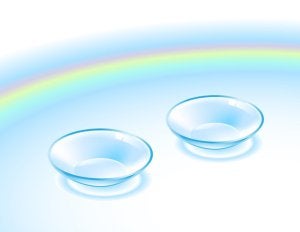 If your eye doctor or ophthalmologist has determined that you need vision correction, he may recommend contact lenses. Other than eye surgery, contact lenses are typically the most effective form of vision correction. If you’re interested in contact lenses in Chicago , take some time to read about your different contact lens options.
If your eye doctor or ophthalmologist has determined that you need vision correction, he may recommend contact lenses. Other than eye surgery, contact lenses are typically the most effective form of vision correction. If you’re interested in contact lenses in Chicago , take some time to read about your different contact lens options.If you suffer from severe astigmatism, your eye doctor may suggest rigid, gas permeable contact lenses. These are often called hard contact lenses, because they are made from an inflexible material. Gas permeable lenses are worn for a full year, and are more resistant to breaking or ripping than soft contact lenses.
Eye doctors more commonly prescribe disposable contact lenses, or soft contact lenses, for vision correction. These lenses are typically worn for one or two months before throwing them away and using a fresh, new pair. They are sold in boxes of six, and you can purchase up to a year’s supply of lenses at one time. Daily wear contact lenses are worn for a full day, and removed and stored while you sleep. Extended wear contact lenses are soft contact lenses that are worn day and night for a week at a time.
-
Practicing Eye Safety at Home
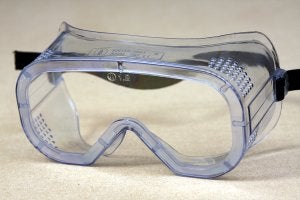 October is home eye safety month, which provides you and your eye doctor with the perfect opportunity to discuss eye care in Chicago , and how to practice eye safety at home. About half of the country’s annual eye injuries occur in the home, while undergoing normal daily tasks. Protecting your eyes in your home will greatly reduce your risk of needing costly visits to the ophthalmologist for eye treatments or eye surgery. Here are some ways that you can practice at-home eye safety.
October is home eye safety month, which provides you and your eye doctor with the perfect opportunity to discuss eye care in Chicago , and how to practice eye safety at home. About half of the country’s annual eye injuries occur in the home, while undergoing normal daily tasks. Protecting your eyes in your home will greatly reduce your risk of needing costly visits to the ophthalmologist for eye treatments or eye surgery. Here are some ways that you can practice at-home eye safety.Wear Eye Protection When Necessary
Most people don’t think it’s necessary to wear protective eye gear in their own home. Safety goggles are completely essential when performing some household activities. If you’re using tools for household repairs or renovations, such as hammers, drills, or saws, you must protect your eyes from dust, sawdust, flying debris, or tool malfunction. Eye protection is also necessary when spraying certain hazardous chemicals or cleaning products inside or outside of the home. You should also always wear eye protection when playing sports at your home.
Use Extreme Caution When Handling Chemicals
When you’re using hazardous chemicals or dangerous cleaning agents in your home, you should always use extreme caution. Read all warning labels prior to use, and never mix two products together without consulting with a professional. Use hazardous products in a well-ventilated area. If there is any chance that the products will become airborne, or if you’re spraying them inside or outside, protect your eyes from chemical contact. Always wash your hands thoroughly after using any hazardous chemicals or cleaning products.
Keep Pathways and Walkways Clear
If you trip and fall, you run the risk of injuring your eyes, as well as other parts of your body. Ensure that all walkways, pathways, and staircases have sufficient lighting. Stairs should also have handrails. To prevent accidents, keep all common walkways, pathways, and staircases free from hazards and debris, such as shoes, toys, appliances, and furniture. Secure any rugs or carpeting so that they don’t provide a trip or fall risk.
-
A Look at the Importance of Safety Eyewear
Eye injuries can necessitate costly eye care or even eye surgery from an ophthalmologist in Chicago . Wearing safety eyewear in your home, workshop, garage, yard, or workplace can protect your eyes from injury and damage. Your eye can sustain significant injury from airborne chemicals, dust, and debris, so it’s important to protect yourself from potential harm.
Watch this video to learn more about the importance of safety eyewear. You’ll learn about the safety risks in the home and workplace that can cause serious injury. Taking the necessary eye care precautions can significantly reduce your risk of injury and damage to your eye.
-
Focus on Eye Injury Prevention
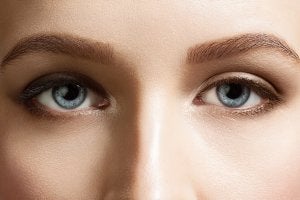 Because October is eye injury prevention month, your eye doctor in Chicago may give you certain eye care tips. These tips will help you reduce your risk of suffering from a painful eye injury in or out of your home. Eye injuries often necessitate costly visits to an ophthalmologist for eye care or eye surgery, and some injuries can be permanent or debilitating. Here are some key eye injury prevention tips.
Because October is eye injury prevention month, your eye doctor in Chicago may give you certain eye care tips. These tips will help you reduce your risk of suffering from a painful eye injury in or out of your home. Eye injuries often necessitate costly visits to an ophthalmologist for eye care or eye surgery, and some injuries can be permanent or debilitating. Here are some key eye injury prevention tips.In Your Home
If you’re cleaning your home with any hazardous or dangerous cleaning products, exercise extreme caution. Such products include bleach, ammonia, and specialty cleansers. Do not mix any products together without first consulting a professional, and use all products in a well-ventilated area. When using any airborne products, such as bug spray, hairspray, body spray, be sure the nozzle of the spray is pointed away from your face, or that your eyes are closed or you’re wearing eye protection.
In Your Garage or Workshop
If you’re using power tools, it’s essential that you wear protective eyewear, such as safety goggles. Safety goggles will protect your eyes from dust and sawdust, flying particles and debris, and broken pieces that may become airborne as a result of faulty equipment. In your garage, you may be subject to harmful fumes, chemicals, and sparks that can cause damage to your eyes. If you’re working on your car, wear protective eye gear to ensure that you won’t suffer from an eye injury.
In Your Yard or Garden
Lawnmowers and other lawn and gardening equipment can launch rocks and other small pieces of debris into the air. Wear safety goggles to prevent these projectiles from injuring your eyes. If you’re spraying your garden with insecticide or other chemicals, always point the nozzle of the spray bottle away from your face, and wear protective eyewear. If you’re playing sports or games in the yard, protect your eyes from flying balls or other sports equipment.
-
Healthy Aging Month: Protecting Your Eyes as You Get Older
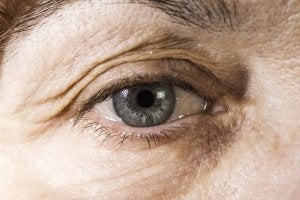 As you age, you become more vulnerable to certain eye conditions and diseases. These conditions can cause impaired vision and even blindness if they aren’t treated by an eye doctor. If you’re getting older, an eye doctor or ophthalmologist near Chicago can help you maintain the health of your eyes. Keep reading for some valuable tips on how to protect your eyes as you age.
As you age, you become more vulnerable to certain eye conditions and diseases. These conditions can cause impaired vision and even blindness if they aren’t treated by an eye doctor. If you’re getting older, an eye doctor or ophthalmologist near Chicago can help you maintain the health of your eyes. Keep reading for some valuable tips on how to protect your eyes as you age.Eat a Healthy Diet
A healthy diet can go a long way towards maintaining the health of your eyes. Fresh, leafy greens, fruits, and a diet rich in vitamin A, vitamin C, and antioxidants can greatly reduce your risk of developing eye conditions or diseases. Cataracts and macular degeneration occur much less often in those who eat healthy diets that are rich in vitamins, minerals, healthy proteins, omega-3 fatty acids, and lutein. You should also consume plenty of fresh fruit, vegetables, whole grains, healthy fats and protein, and water.
Take Eye Vitamins and Vision Supplements
Nutritional supplements combined with a healthy diet and regular exercise can significantly lower your risk of vision problems and eye conditions. Beta-carotene, zinc, vitamin C, and vitamin E are crucial for maintaining the health of your eyes. Your eye doctor may recommend that you take a daily multivitamin that also contains lutein, zeaxanthin, omega-3 fatty acids, and copper—and supplement that multivitamin with a daily dose of vitamin B complex with folic acid.
Visit an Eye Doctor Regularly
The best way to detect an eye condition early enough to receive successful treatment is by regular visits to an eye doctor or ophthalmologist. Your eye doctor can do regular screenings for macular degeneration, glaucoma, cataracts, astigmatism, and eye cancer. The sooner these eye conditions are diagnosed, the more effective your treatment will be. Your eye doctor can also recommend nutritional and lifestyle changes that will decrease your risk of developing certain dangerous eye conditions.
-
What Is a Cortical Cataract?
 A cataract is an eye condition that causes worsening vision and eye problems if it is not treated by an eye doctor. The symptoms of cataracts include blurry vision, sensitivity to light, poor night vision, double vision, seeing halos around light sources, distortion of color perception, and frequent changes in contact lens or eyeglasses prescriptions. Cataracts can be diagnosed and treated by an eye doctor or ophthalmologist near Chicago .
A cataract is an eye condition that causes worsening vision and eye problems if it is not treated by an eye doctor. The symptoms of cataracts include blurry vision, sensitivity to light, poor night vision, double vision, seeing halos around light sources, distortion of color perception, and frequent changes in contact lens or eyeglasses prescriptions. Cataracts can be diagnosed and treated by an eye doctor or ophthalmologist near Chicago .There are three primary types of cataracts: subcapsular cataracts, nuclear cataracts, and cortical cataracts. Cortical cataracts cause a worsening of vision that begins in the peripheral vision. You may notice cloudy, white floaters that progress from the periphery of your vision towards the center. Cortical cataracts occur in the lens cortex, or the part of the eye’s lens that surrounds the central nucleus.
If you suffer from cataracts, an eye doctor or ophthalmologist may first try to correct your vision using eyeglasses or contact lenses. If this treatment doesn’t work and the cataracts progress, you may need to undergo cataract surgery. Often, cataract surgery is the only truly successful method of cataract treatment.
-
Tips for Keeping Your Child’s Eyes Healthy
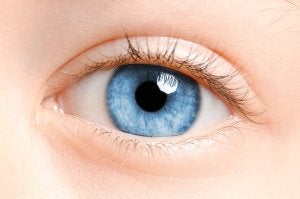 As a parent, you’re responsible for protecting the health of your child’s eyes. This includes taking him for regular visits to an eye doctor or ophthalmologist near you. You’ll also need to buy him appropriate protective eyewear for sports and swimming, watch him carefully when he handles sharp objects, and keep him away from fireworks and other incendiary devices. For more tips on children’s eye care near Chicago , keep reading.
As a parent, you’re responsible for protecting the health of your child’s eyes. This includes taking him for regular visits to an eye doctor or ophthalmologist near you. You’ll also need to buy him appropriate protective eyewear for sports and swimming, watch him carefully when he handles sharp objects, and keep him away from fireworks and other incendiary devices. For more tips on children’s eye care near Chicago , keep reading.Protect Eyes from Damage
When your child is very young, don’t allow him to play with any toys that have sharp edges that may gouge or damage the eyes. Don’t let him play on or near tables or other furniture with sharp corners. When your child begins swimming or playing sports, buy him appropriate safety eyewear to protect his eyes from injury. If your child spends prolonged periods of time outdoors, make sure that he wears sunglasses regularly.
Visit an Ophthalmologist Regularly
An ophthalmologist is a medical doctor who specializes in eye and vision care. Ophthalmologists are different from ophthalmologists, as they are eye doctors who can prevent, diagnose, and treat a wide array of eye disorders and diseases. If there is a history of eye or vision problems in your family, it is even more important that your child visit an ophthalmologist regularly. Your child’s ophthalmologist can provide your child with eye exams, and screen his eyes for signs of illness, disease, cancer, and vision problems.
Have Vision Checked With an Eye Doctor
An eye doctor or ophthalmologist can provide your child with regular vision checkups. He will also test your child for astigmatism, glaucoma, and other eye conditions. If your child has poor vision, an eye doctor will provide eyeglasses or contact lenses that can correct his vision. Certain vision problems and eye conditions become worse without treatment, so even if your child hasn’t mentioned suffering from any vision loss, he should still visit an eye doctor regularly.
-
Understanding Common Eye Problems
There are many different types of eye problems and eye disorders that people are vulnerable to. An eye doctor or ophthalmologist will regularly screen you for common eye problems. He can also offer you prevention tips to help reduce your risk of developing certain eye problems. If you’re interested in eye care or vision correction near Chicago , visit an experienced eye doctor near you.
Watch this video for some helpful information on the most common eye problems that eye doctors come across. In the clip, a representative of the National Eye Institute discusses such issues as nearsightedness, farsightedness, astigmatism, and presbyopia.
